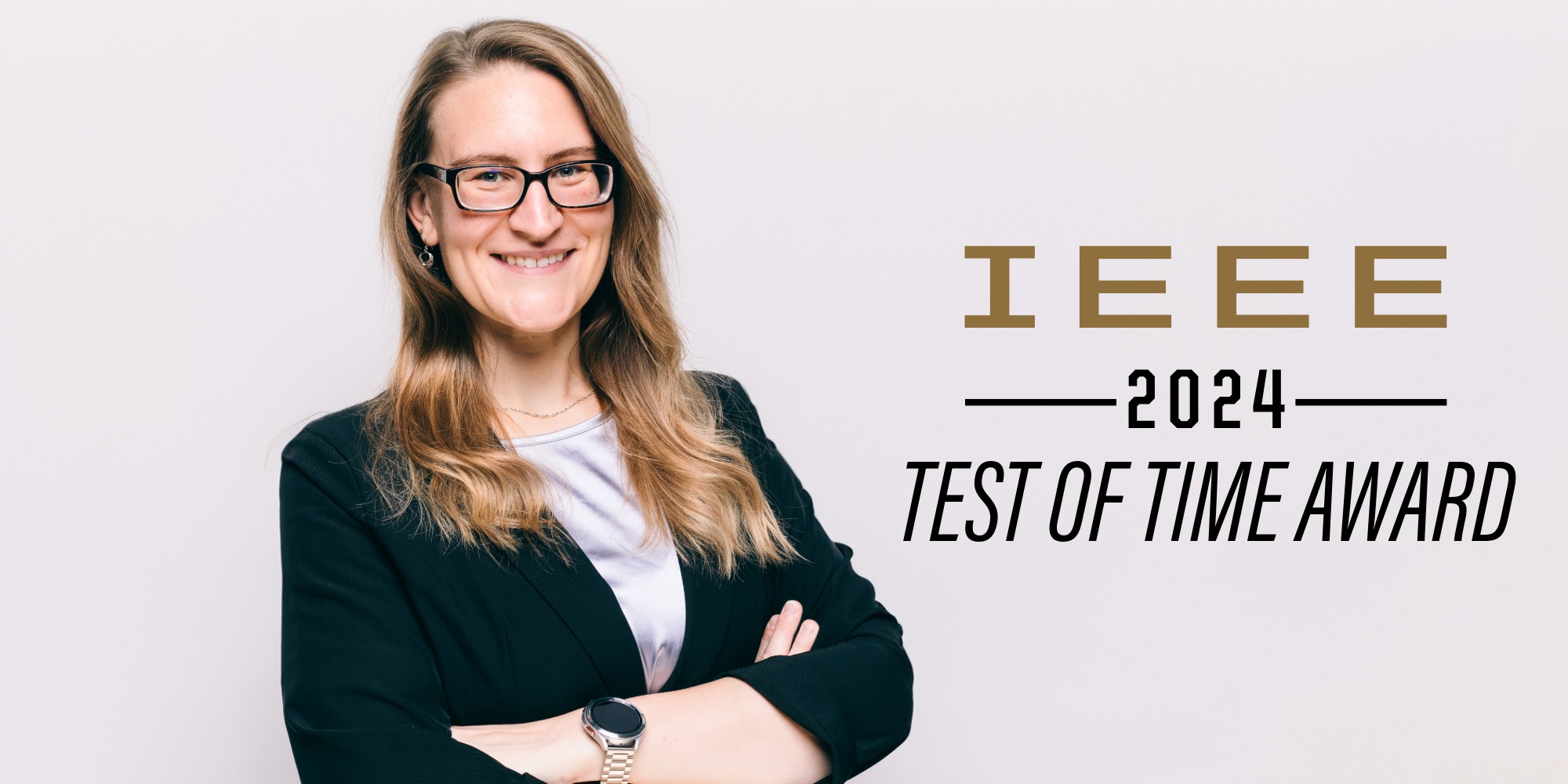Garman wins Test-of-Time award at IEEE Symposium on Security and Privacy
05-21-2024

The Institute of Electrical and Electronics Engineers (IEEE) awarded a Test-of-Time award to Assistant Professor Christina Garman and her co-authors during its 45th Symposium on Security and Privacy.
A research paper seen as a “blueprint” for the first practical use of zero-knowledge proofs (ZK-proofs) has received an IEEE Symposium on Security and Privacy Test-of-Time Award.
The award went to the publication’s authors: Alessandro Chiesa, Christina Garman, Matthew Green, Ian Miers, Eran Tromer, Madars Virza and Eli Ben-Sasson.
Screenshot of the white paper. Source: ieee.org
This award was initiated in 2019 year’s 40th anniversary symposium to recognize papers published at the "Oakland" Conference that have made a lasting impact on the field. The committee was charged with identifying award-worthy papers that were published in the IEEE Security and Privacy Symposia from 2012 through 2014.
The paper, with 2,400 academic citations, did not transform finance but paved the way for the proliferation of projects using ZK-proofs, the firm added.
It also introduced the first practical use of the cryptographic technique in cryptocurrency for enhancing privacy.
The paper described using Zero-Knowledge Succinct Non-Interactive Arguments of Knowledge (zk-SNARKS) to construct a private payment protocol called Zerocash, which hides the origin, destination and number of transactions.
ZK-proofs are now a commonly used technique for Ethereum layer-2 solutions to prove the validity of on-chain data without revealing what that data specifically consists of.
They can help scalability by enabling techniques like rollups and the trustless validation of large amounts of data off-chain. Leading layer-2 networks currently using ZK-proofs include StarkNet, Linea, zkSync Era, Scroll and Polygon.
Christina Garman is an assistant professor in the Department of Computer Science at Purdue University. Her research interests focus largely on practical and applied cryptography, namely the design and analysis of real world cryptographic systems. She aims to make it easier to design and securely deploy new and complex cryptographic systems while preventing insecurities from occurring in such systems. As part of this, her work thus far has been on both building and deploying secure cryptographic systems, as well as analyzing existing systems. This includes past work on cryptographic automation and building "keyless CDNs", as well as exploring the weaknesses of RC4 in TLS and discovering flaws in Apple's iMessage, and her current work focusing on removing the "human element" from the deployment and analysis of cryptographic systems through the use of cryptographic automation and the development of tools. She received an NSF CAREER Award in 2021, and her work has received a best paper award at ACM CCS and been featured in numerous media, including The Washington Post, The New York Times, Wired, and The Economist. She is also one of the co-founders of Zcash, a privacy preserving cryptocurrency based on her work on Zerocash. She received her MS and Ph.D. from Johns Hopkins University in Computer Science in 2013 and 2017 respectively.
About the Department of Computer Science at Purdue University
Founded in 1962, the Department of Computer Science was created to be an innovative base of knowledge in the emerging field of computing as the first degree-awarding program in the United States. The department continues to advance the computer science industry through research. US News & Reports ranks Purdue CS #20 and #18 overall in graduate and undergraduate programs respectively, 6th in cybersecurity, 8th in software engineering, 13th in programming languages and systems, 15th in data analytics, and 18th in theory. Graduates of the program are able to solve complex and challenging problems in many fields. Our consistent success in an ever-changing landscape is reflected in the record undergraduate enrollment, increased faculty hiring, innovative research projects, and the creation of new academic programs. The increasing centrality of computer science in academic disciplines and society, and new research activities—centered around foundations and applications of artificial intelligence and machine learning, such as natural language processing, human computer interaction, vision, and robotics, as well as systems and security—are the future focus of the department. cs.purdue.edu